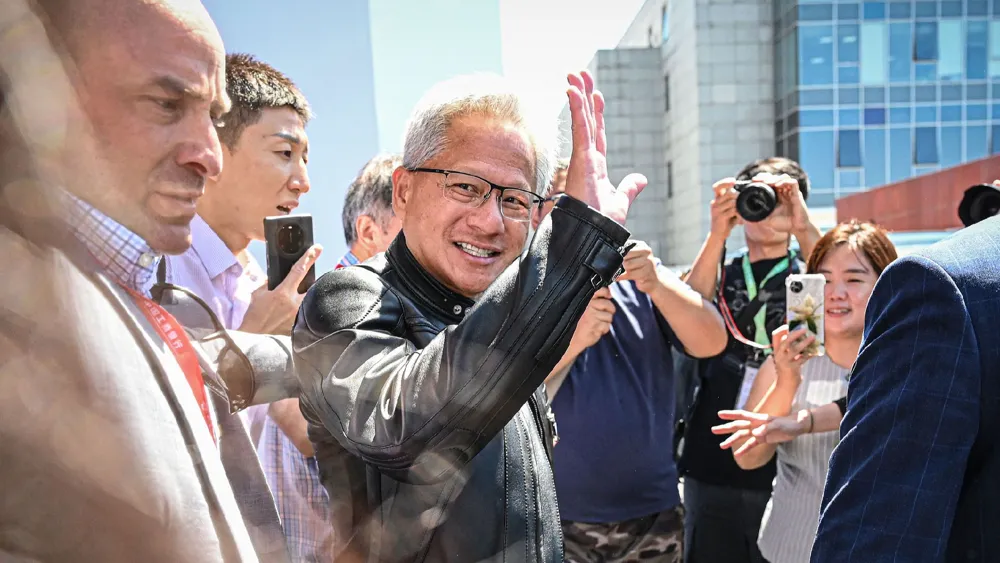Chips Industry Reflects U S Sentiment Amid Challenges

A recent analysis of the semiconductor industry underscores the evolving dynamics of China-U.S. relations, particularly following Nvidia's recent announcement of receiving U.S. government approval to sell H20 computer chips to China. This policy shift marks a significant reversal from the stringent restrictions imposed during the Trump administration, which outright prohibited such sales back in April.
This development was further highlighted by Nvidia CEO Jensen Huang's visit to China, where he revealed plans to also export the new RTX Pro GPU to Chinese customers. The stock markets reflected a favorable response to this news, signaling optimism among business sectors regarding the potential for renewed trade ties.
However, not all reactions to this news have been positive within U.S. media circles. Outlets like Vox expressed concern that allowing the sale of H2O chips to China could negates the U.S. edge in artificial intelligence, framing it as a move that benefits Chinese advancements.
Similarly, CNBC pointed out that these chips might be of lower quality, referencing U.S. Commerce Secretary Howard Lutnick's comment that China is acquiring Nvidia's 'fourth best' AI chip. Such narratives contribute to a perception among some U.S. commentators that China is consistently at a disadvantage, irrespective of the circumstances.
The media's portrayal of the semiconductor trade is often colored by deep-seated geopolitical tensions and economic rivalry. This tension can be traced to the crucial role that technology plays in not only national security but also in the broader scope of economic supremacy. As nations increasingly recognize the need for technological dominance, discussions often lean towards a competitive rather than cooperative framework.
Witnessing the U.S.'s inconsistent trade stance towards China reveals the complexities stemming from shifting political tides and varying priorities among government officials. As leadership changes and public perceptions evolve, trade policies can fluctuate dramatically, creating a landscape rife with uncertainty in U.S.-China relations.
Underlying these trade dynamics is a persistent Cold War mentality among certain U.S. policymakers, who harbor a zero-sum view of international relations. This mindset fuels fears that engaging with China in technological sectors may jeopardize U.S. interests.
However, U.S. leaders simultaneously recognize the economic incentives of maintaining trade relations with China. Despite perceived threats, emerging narratives posit that cutting ties could result in a significant loss in access to one of the world’s largest consumer markets.
Alongside these issues, a narrative of victimhood has surfaced in U.S. discourse, suggesting that the nation has been misled in international engagements, fostering sentiments of trade protectionism and suspicion towards globalization.
Nonetheless, American businesses, including Nvidia, have emphasized the importance of engaging with China, noting the substantial financial contributions from the Chinese market to their revenues. Huang himself noted that neglecting this key market could ultimately harm U.S. tech firms.
In discussing the broader competition between the U.S. and China, Harvard professor Graham Allison describes it as akin to a 'geopolitical Olympics,' impacting various dimensions—including the economy and technology. Yet, Chinese Ambassador to the U.S., Xie Feng, suggests that this competition should resemble a race for excellence rather than combative interactions.
As conflicting narratives and perspectives dominate media commentary, the recent decision to allow Nvidia to resume sales to China reveals a recognition that complete decoupling between the two largest economies is not only impractical but detrimental in today’s intertwined global economy.
Read These Next

UK Investigates Apple and Google Tech Regulations
This article examines the implications of the UK's CMA investigation into Apple's and Google's market dominance, exploring the concept of duopoly in mobile technology and its impact on competition and consumer choice.

Moths Detect Ultrasonic Sounds Emitted by Tomato Plants
Researchers at Tel Aviv University found female moths respond to ultrasonic sounds from stressed tomato plants, aiding reproduction.

Co-op Cyber-Attack: A Wake-Up for Data Protection
This article explores the impact and implications of the Co-op cyber-attack, emphasizing the need for stronger data protection measures in an increasingly digital landscape, and discusses potential steps consumers and businesses can take to enhance cybersecurity.
